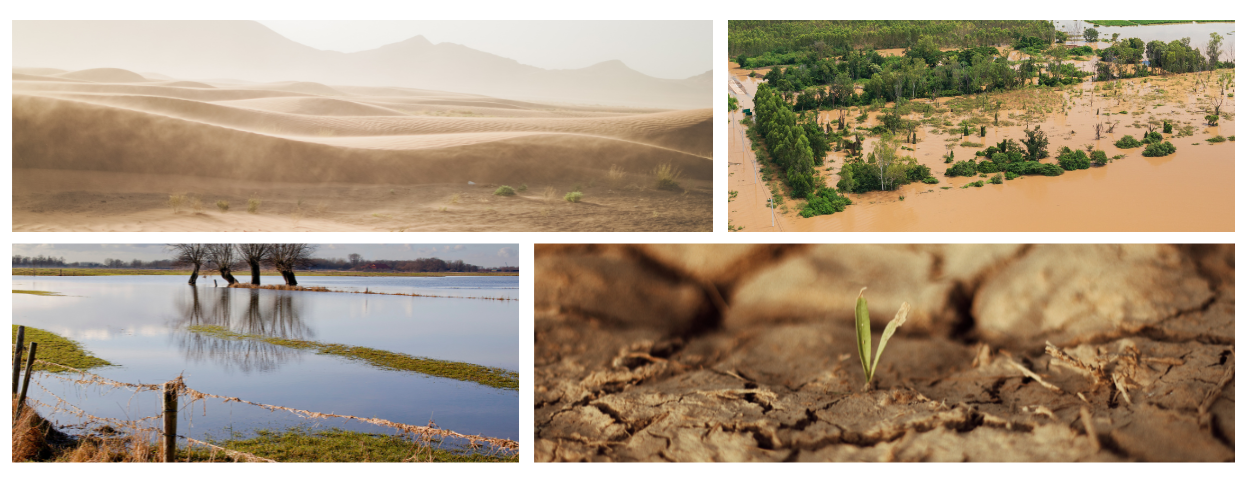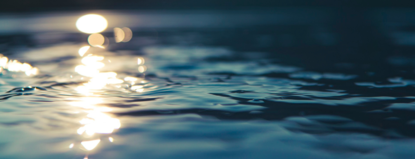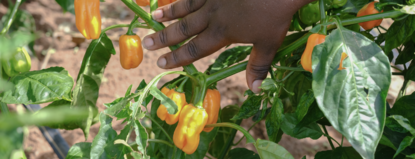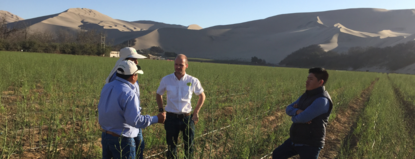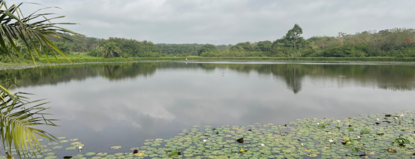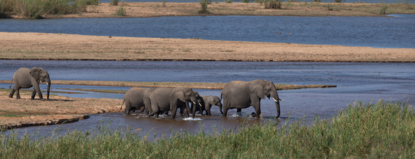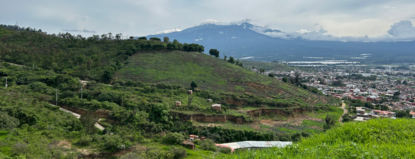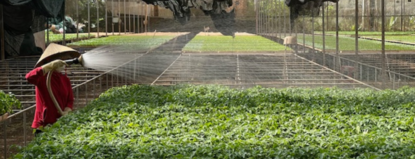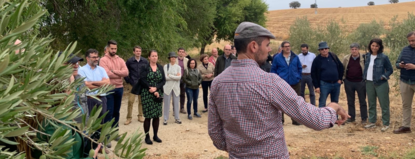Leading up to the Stockholm Water Week (August 25-29), the Netherlands Agricultural Network (LAN) is releasing its 12th edition of the Agrospecial, where we showcase the work of our Agricultural Counselors and their teams in Côte d’Ivoire, Mexico, Saudi Arabia, South Africa, Spain and Vietnam focused on water. To set the scene, Meike van Ginneken, Water Envoy for the Kingdom of the Netherlands, discusses the current challenges we face worldwide with our water resources and the importance of international collaboration on the nexus between water management, agriculture and biodiversity.
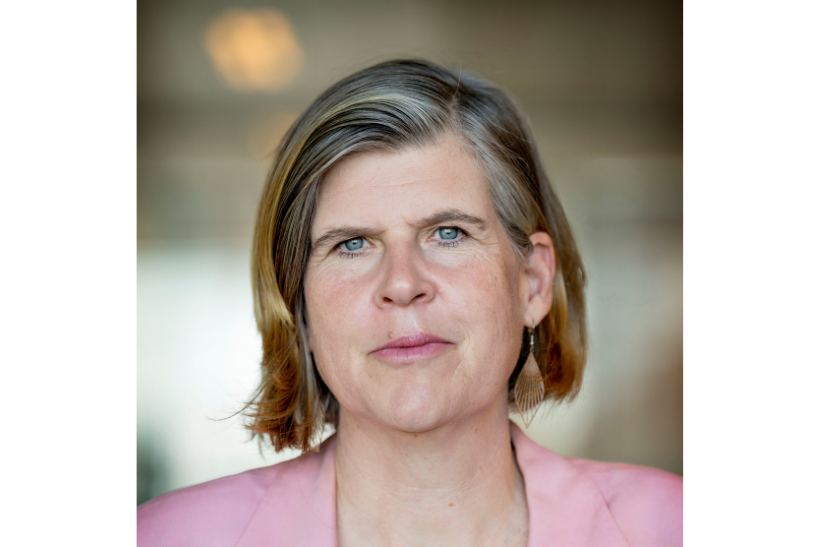
As I worked internationally on water, food and shared prosperity, I have always taken pride in the reductions in poverty and food insecurity that we saw year after year. Unfortunately, this trend has reversed. More people are hungry now than a decade ago.
Feeding the world requires water. It requires we manage our water resources well. Agriculture accounts for over 70% of water use and significantly impacts our water systems through drainage, pollution, and overuse. This makes farmers our most important local water managers.
I am proud to introduce this edition of the Agrospecial e-magazine that showcases our international efforts in water management, biodiversity and food security.
"People experience the impacts of climate change through water."
Water management for food security and biodiversity
People experience the impacts of climate change through water. People living in vulnerable conditions and marginalized groups are the most acutely impacted.
Droughts create severe food insecurity and traps farmers in poverty as 80% of cultivated land is rain-fed. Sea water rise makes our freshwater resources increasingly saline. This threatens food security.
Water and agricultural professionals are already working together. Most of the ongoing work focuses on engineering and technology. Countries are investing in climate-resilient water infrastructure and drip irrigation. Drought resistant seeds are being developed, distributed and used.
Engineering and technology will remain important. But engineering solutions alone will not be sufficient to adapt to the changing climate. The water transition goes far beyond the water sector.
"The Dutch Parliament last year made water and soil guiding principles for all spatial planning decisions."
We can only feed the world in a changing climate if we restore and protect natural freshwater stocks. These freshwater stocks are our buffers to save water for dry periods and to store excess rainwater to reduce floods. 99% of freshwater is stored in nature, so we need to halt the depletion of groundwater and the degradation of wetlands and floodplains. Protecting freshwater ecosystems is also critical for maintaining biodiversity.
Creating water buffers also requires switching farming practices to stop soil degradation and moisture loss. This way we preserve and restore our green water stocks - the water that remains in the soil after rainfall. Green water is the main water source to produce crops. We know that rainwater harvesting, reduced tillage, use of cover crops and restoring forest help to preserve green water. We need to apply these known measures much more often, more widely, more consistently.
The Dutch Parliament last year made water and soil guiding principles for all spatial planning decisions. Changing rainfall and reduced freshwater availability will also require other countries to change where to grow our food, build cities, and plan industries.
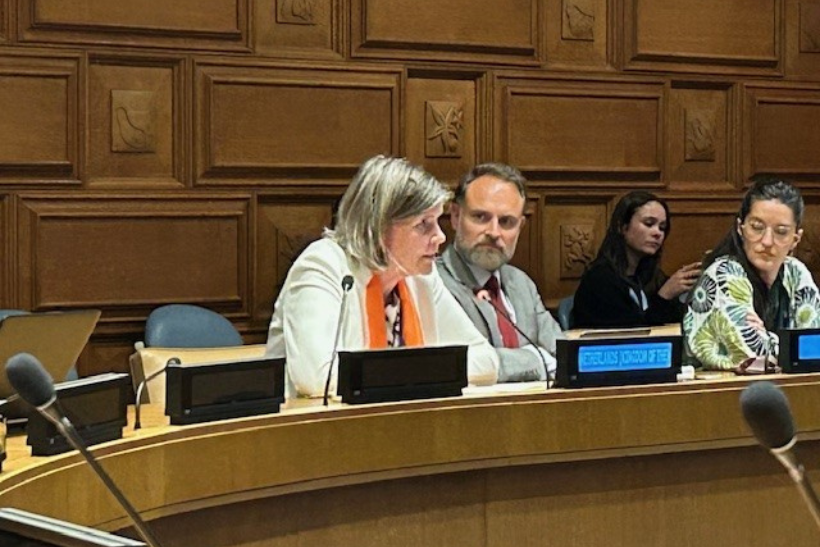
Motivating Stories and Projects
We need to work across disciplines and across sectors. Agronomists are great at optimizing crop per hectare and crop per drop. Hydrologists estimate water availability and devise measures to regulate water availability. Ecologists understand natural ecosystems and their role in the water cycle. Let us unlock synergies by combining our collective expertise.
In this 12th edition of the Agrospecial e-magazine, colleagues from our Ministry of Agriculture, Fisheries, Food Security and Nature in the Netherlands and the Netherlands Agricultural Network (LAN) working at Dutch embassies abroad, share their inspiring stories and projects. They highlight examples of successful agricultural water management.
I trust that this e-magazine will give you a better understanding of our international work on the nexus between water management, agriculture and biodiversity. I invite you to collaborate with us. Together, we can create a water and food secure world. Enjoy your reading!
Meike van Ginneken,
Water Envoy for the Kingdom of the Netherlands
More information
For more information about Meike van Ginneken, Water Envoy for the Kingdom of the Netherlands, you can go to Government.nl.
Reading Guide
In this 12th edition of the Agrospecial magazine, the Netherlands Agricultural Network’s (LAN) Agricultural Counselors in Cote d’Ivoire, Mexico, Spain, South Africa, Saudi Arabia and Vietnam showcase their work and involvement in the nexus between water management, agriculture and biodiversity and highlight how they bring together local and Dutch stakeholders. They introduce us to their related work, provide insights into what is happening in their respective countries, and showcase examples of projects and actions LAN is taking in water management. While doing so, they demonstrate that working together is essential to reach water security as well as food security.
- The layout of this magazine is organized by continent (Africa, Americas, Asia, Europe and the Middle East) including points of view from the Dutch public and private domain. Through the drop-down menu at the top left, you will find all articles.
- Once you have opened and read an article, you can use the scroll bar on the right or left side of the screen or swipe up and down on your mobile device to navigate through the content.
- Continue scrolling to explore all the information, analysis, and insights within the Agrospecial. You may encounter images, graphs, tables, and text that are relevant to the agricultural sector and food production in that specific area.
August 2024
